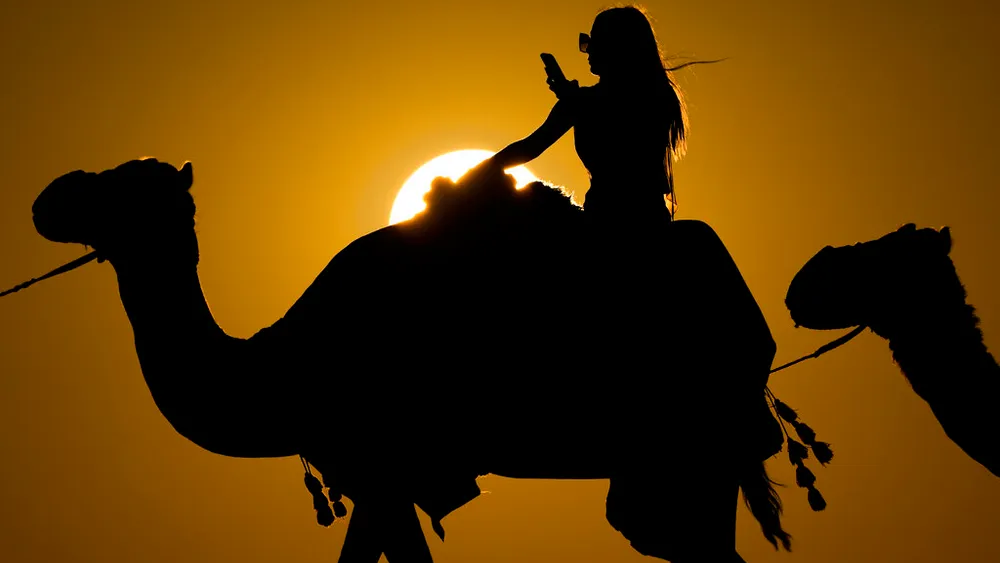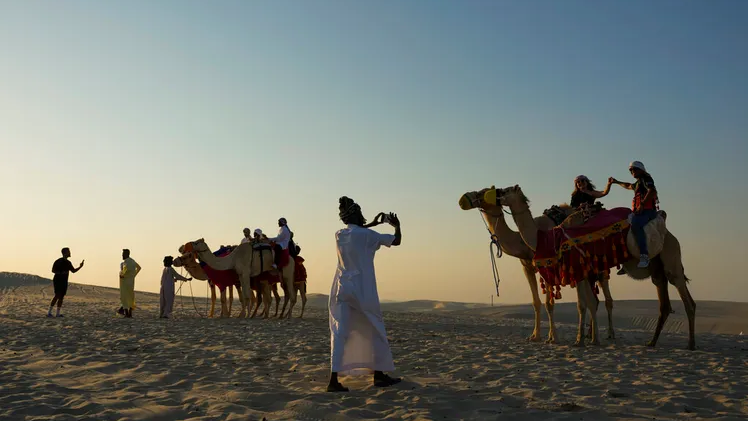Over a million soccer fans are expected to travel to Qatar during the World Cup, bringing in business for hotels, restaurants, shops, and camel owners, as tourists are lining up to take rides on the humpback animals, a traditional means of travel in the desert.
Beauty pageants in Qatar, camel racing in Saudi Arabia, camel wrestling in Turkey, tourist attractions in the United States – a camel’s worth is increasing worldwide. But reports have surfaced that Qatari camels have been working overtime to meet the excitement of soccer fans, going on dozens of rides a day without any breaks.
2 View gallery


A woman looks at her photo while riding a camel in Mesaieed, Qatar
(Photo: AP / Ashley Landis)
“I’ll always be the first to take the side of the camels," said Valeri Crenshaw, secretary-general of the North American Camel Ranch Owners Association.
"But we have to trust the owners of the camels and hope they are monitoring what's going on and how the camels are responding to this influx of visitors and work," she said.
"The camels are their owners' whole income, so they can't let something happen to their animals. Otherwise, it would affect everything for the owners. So you have to put some trust into those people with their knowledge and appreciation."
2 View gallery


A tour guide takes a photo of a couple atop camels in Mesaieed, Qatar
(Photo: AP / Ashley Landis)
Camel riding traces back to the seventh century AD, around the time that the first Muslim Empire was sprawling across the Middle East and north Africa. The Arabian Peninsula has been home to these gentle giants for thousands of years.
"People are surprised at how much camels like to work. They are very intellectual, they want to be thinking and problem-solving, instead of just being in the pasture or the desert grazing," Crenshaw continued.
"My guess is, these camels appreciate that they have a job, but even if we love our jobs, we get worn out. There’s always a fine balance," she said, noting that the desert travelers are incredible in that they are intuitive.
"Their reputation does not match the experiences that I’ve had with them."

